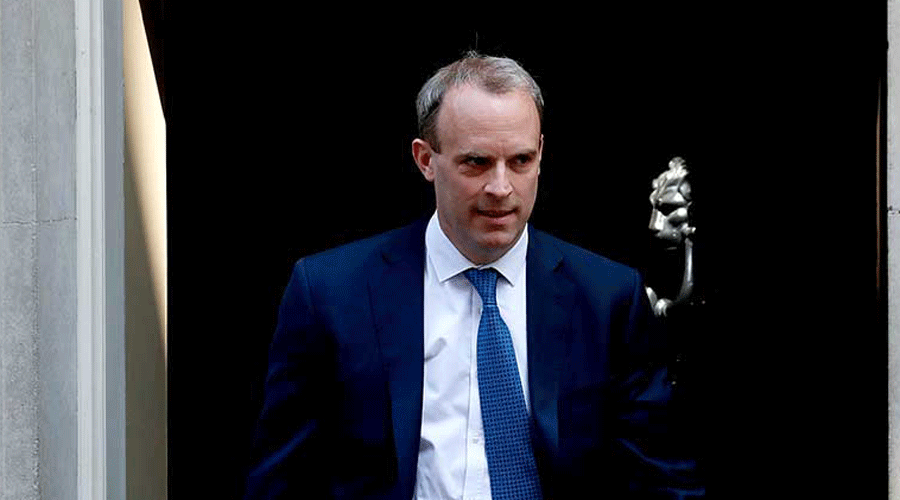In a cabinet shuffle on Wednesday, British Prime Minister Boris Johnson moved Dominic Raab from his post as secretary of state for the foreign, commonwealth and development office.
The demotion was a punishment for being on holiday as the Taliban were taking over in Kabul and allegedly for being inept in handling the Afghanistan crisis.
Raab was downgraded to the job of justice secretary but the demotion was made more palatable by giving him the additional title of “deputy Prime Minister” which doesn’t exist in British politics, plus Lord Chancellor.
Raab’s place as foreign secretary is being taken by Liz Truss, the international trade secretary who has been working with India to develop an “enhanced partnership”. It is certain she won’t wear a head covering if she has to talk directly to the Taliban.
A day after announcing Covid plans for winter, Boris was wielding the knife, which remains the Prime Minister’s prerogative, but sacking ministers is something he doesn’t like doing. Nevertheless, Gavin Williamson was sacked as education secretary, Robert Buckland as justice secretary and Robert Jenrick as housing and local government secretary.
Amanda Milling has also been sacked as Conservative Party co-chairman.
There was a confirmation from 10 Downing Street that “The Rt Hon Rishi Sunak MP remains Chancellor of the Exchequer”.
There was never any doubt that Sunak would remain chancellor. He is widely regarded as the most competent minister in the government. Giving Raab the title of “deputy Prime Minister” does not mean he is seen as Boris’s successor.
The BBC’s political editor, Laura Kuenssberg, who is usually tipped off by informed sources, said that despite speculation to the contrary, Priti Patel would remain home secretary. Shortly afterwards, Downing Street confirmed Priti would indeed stay at the home office — it is known that Boris admires her. She came to prominence under David Cameron who appointed her his “India diaspora champion” but she supported Brexit while the former Prime Minister was a remainer.
As Priti left Downing Street, she tweeted that it was a “huge privilege to continue serving” under Boris, adding: “There is still so much more to do to deliver for the British people.”
For her, this includes “tackling illegal migration, cutting crime and continuing to keep our great country safe”.
The Prime Minister’s spokesperson tried to make the sackings appear less brutal by praising the outgoing ministers. Robert Buckland had made “a huge contribution to government as justice secretary and lord chancellor, including making our streets safer through significant reforms to sentencing and tackling re-offending.
“Robert Jenrick has led crucial work over the last two years, most importantly driving reforms to build more houses so home ownership becomes a reality for many more people. Gavin Williamson has played a key role in transforming the skills agenda as we create a high wage and high skilled economy.”, providing a lifetime skills guarantee for millions across the country.”
Boris last reconfigured his cabinet in February 2020 after the UK formally exited the EU but many of his senior ministers have not changed their roles since he became prime minister in July 2019.A senior Downing Street insider said the long-awaited cabinet reshuffle would “put in place a strong and united team to build back better from the pandemic. The PM will be appointing ministers this afternoon with a focus on uniting and levelling up the whole country.”
Downing Street also said the Prime Minister had not consulted his wife on the reshuffle after Dominic Cummings, Johnson’s former chief adviser, branded the shake up a “Carrie reshuffle”.











